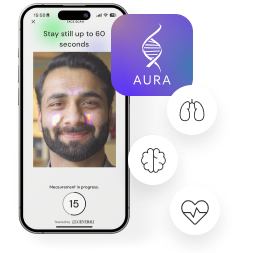
table of contents
A longevity-focused diet plays a significant role in how we age. From protecting against chronic disease to supporting cellular repair and metabolic balance, the food choices we make daily can directly impact both lifespan and healthspan. This guide explores how nutrition for longevity and diet and longevity are connected through science-backed strategies like fasting, protein moderation, and whole-food diets.
Nutrition and longevity
Many people are curious about whether the way we eat can influence how long we live. That’s why researchers have spent years studying populations with unusually high life expectancy — such as those living in the so-called Blue Zones. Across these regions, certain dietary habits stand out: meals are mostly plant-based, calorie intake is moderate and dietary variety is high.
BLUE ZONES:
The 5 regions in the world with the highest number of people living long lives with fewer lifestyle-related diseases: Okinawa, Japan | Sardinia, Italy | Nicoya, Costa Rica | Ikaria, Greece | Loma Linda, California.
These regions follow what could be described as a natural longevity nutrition plan, offering insights into the best diet for long life and how lifestyle influences aging.
Designing a longevity diet
A longevity diet isn’t a fixed plan but more of a flexible framework. It focuses on whole, nutrient-rich foods, moderate calorie intake, and thoughtful meal timing. Inspired by the research of experts like Dr. Valter Longo, the key principles include:
- A mostly plant-based diet
- Moderate protein, preferably from legumes and fish
- Healthy fats such as olive oil and nuts
- Complex carbs from vegetables and whole grains
- Minimal sugar and ultra-processed foods
- Eating within a daily window of 10–12 hours
A large UK study from 2023 based on data from 467,354 adults, found that people with an unhealthy diet could gain up to 10 extra years of life by switching to a healthy diet for longevity This diet included more whole grains, nuts, vegetables, legumes, fish, and white meat, and less processed meat and sugary drinks. Even smaller changes showed measurable benefits for life expectancy.
Longevity and fasting
Fasting isn’t just about eating less — it gives the body time to reset.
Intermittent fasting and the Fasting-Mimicking Diet (FMD) can activate important repair processes, reduce inflammation, and support better metabolic health. FMD is mostly five-day, low-calorie, plant-based diet that mimics the effects of fasting without cutting out food completely. One of the key effects is autophagy — a process where cells clear out damaged parts and reuse them for energy or repair. This helps protect the body against aging and disease.
In a 2024 study led by Dr. Valter Longo, just three monthly FMD cycles reduced biological age by 2.5 years. Participants also showed less liver fat, improved insulin resistance, and better immune balance — and these benefits were seen even without weight loss.
Related: Effects of intermittent fasting: Health and aging guide
Fasting supports longevity by improving blood sugar control, boosting mitochondrial efficiency, and lowering IGF-1 levels. It also activates key genes like SIRT1, which helps repair DNA and reduce inflammation, and FOXO, which strengthens stress resistance and cell survival.
What is IGF-1 (Insulin-like Growth Factor 1):
A growth-related hormone that supports cell growth and repair. High levels in adulthood are linked to increased risk of age-related diseases.
If you’re curious to learn more about how autophagy works and its impact on healthy aging, read more here: Spermidine and autophagy: Everything you need to know
Calorie-restricted diet and longevity
Calorie restriction and longevity has long been associated with increased lifespan in animal studies. Research in mice, rats, and monkeys has shown that reducing calorie intake—without causing malnutrition—can extend life and lower the risk of diseases such as cancer, diabetes, and cardiovascular conditions.
In humans, findings from the CALERIE study suggest similar benefits. This two-year randomized trial involved healthy, non-obese adults who reduced their calorie intake by an average of 12%, compared to a control group eating normally. The results were significant:
- Lower blood pressure
- Improved cholesterol levels
- Better insulin sensitivity
- Reduced markers of inflammation
- No signs of harmful nutrient deficiencies
On a molecular level, this calorie-restricted diet for longevity also led to a measurable slowing of biological aging, assessed through the DunedinPACE epigenetic clock. Participants in the calorie-restricted group showed a 2–3% slower pace of aging, a change that previous studies have linked to up to 10–15% lower risk of early death.
What is The DunedinPACE epigenetic clock
The DunedinPACE epigenetic clock is a biological aging measure developed to estimate how fast a person is aging—not just how old they are biologically, but how quickly damage and decline are accumulating in the body.
Longevity and elimination diets
An elimination diet is a short-term eating plan where specific foods or food groups are removed — such as gluten, dairy, sugar, or processed foods — and then gradually reintroduced to identify potential triggers for digestive issues, inflammation, skin problems, or fatigue.
These diets are often used to:
- Detect food intolerances or sensitivities
- Reduce inflammation in the body
- Support gut repair and immune function
Chronic inflammation, poor gut health, and immune imbalance are all linked to aging-related diseases. By removing foods that stress the body and identifying what works best for your individual health, elimination diets may help reduce inflammation and support long-term well-being.
While elimination diets aren’t designed as long-term plans, they can be useful tools in shaping a personalized longevity-friendly diet — especially if you’re dealing with low energy, digestive discomfort, or autoimmune symptoms.
Protein intake for longevity
A large study shows that high protein intake increases the risk of cancer and early death in people aged 50 to 65 – especially when the protein comes from animal sources. Plant-based protein does not appear to have the same negative effect.
Surprisingly, the study found the opposite in people over 65. In this group, low protein intake was linked to higher mortality and frailty, while higher intake offered a protective effect.
The difference seems to be linked to the hormone IGF-1, which increases with protein intake and affects aging and disease differently depending on age.
In other words
In midlife, limiting protein intake – particularly from animal sources – may help reduce the risk of age-related diseases such as cancer and diabetes. In older age, however, increasing protein intake becomes important to support muscle maintenance, physical strength, and overall resilience.
Another large international study from 2025 analyzing data from 101 countries over nearly 60 years found that the balance between animal and plant-based protein in national food supplies is closely linked to survival and life expectancy — but the effects vary by age.
Among children and younger adults, higher levels of animal protein were associated with lower mortality, likely due to better amino acid profiles and key nutrients like iron, zinc, and vitamin A.
In contrast, for adults over 60, plant-based protein was linked to longer life and lower mortality — especially when combined with lower fat intake. Sources like beans, lentils, and whole grains provide fiber and bioactive compounds believed to protect against age-related diseases.
Longevity foods
A major study published in Nature Medicine (2025) followed over 100,000 people for up to 30 years. The researchers found that those who lived the longest and stayed physically, mentally, and cognitively healthy shared a common trait: they ate well over many years.
The diets linked to healthy aging had clear patterns. People who regularly ate vegetables, fruit, whole grains, legumes, nuts, healthy fats, fish, and some low-fat dairy had a much higher chance of reaching old age in good health. These foods were consistently connected with better memory, stronger bodies, and lower risk of chronic disease.
Foods linked to healthy aging
| Recommended foods | Examples |
|---|---|
| Vegetables | Broccoli, spinach, carrots |
| Fruit and berries | Apples, oranges, blueberries |
| Whole grains | Oats, brown rice, whole grain bread |
| Nuts and legumes | Almonds, chickpeas, lentils |
| Healthy fats | Olive oil, avocado |
| Fish | Salmon, mackerel, sardines |
| Low-fat dairy | Yogurt, skyr, low-fat milk |
Foods to limit
- Ultra-processed foods (ready meals, chips, sugary snacks)
- Red and processed meat (bacon, sausages, burgers)
- Trans fats (found in some fast food and baked goods)
- Sugar-sweetened drinks (soft drinks, sweetened iced tea)
- Too much salt, especially from processed foods
According to the study, people in the highest group of ultra-processed food intake had 32% lower odds of healthy aging compared to those in the lowest group. Higher intake was also linked to lower chances of reaching age 70 without major illness, and of maintaining good memory, physical strength, and mental wellbeing.
What are Ultra-processed foods
Industrially manufactured products made from refined ingredients and additives such as flavourings, sweeteners, and preservatives. This includes items like soft drinks, chips, candy, ready meals, and processed meat. They are often high in salt, sugar, and unhealthy fats – and low in nutrients.
Related: Glucose Goddess hacks: Master blood sugar for health and longevity & Sugar and aging: How sugar affects the aging process
Longevity food vs supplementation
A healthy diet is the foundation for a long life. But it’s not always enough. Many nutrients like NMN, resveratrol, vitamin D, and collagen are present only in small amounts in food — or would require large quantities to reach levels studied for their impact on aging. For example, you’d need to eat several kilos of broccoli to match the NMN in a single daily supplement.
This is where supplements make a difference. They can directly support cellular function, metabolism, and immune health — all critical in the aging process.
Some compounds, like berberine, aren’t part of the regular diet but have documented effects on blood sugar and inflammation. Others, like ergothioneine and spermidine, exist in foods such as mushrooms or wheat germ but typically in much lower amounts than those used in clinical research.
Healthy aging isn’t just about food — it’s about the full picture. Quality sleep, physical activity, and scientifically supported supplements can work together to promote daily energy and long-term resilience.
References
- Fadnes LT, Celis-Morales C, Økland J-M, Parra-Soto S, Livingstone KM, Ho FK, et al. Life expectancy can increase by up to 10 years following sustained shifts towards healthier diets in the United Kingdom. Nat Food. 2023;4(11):961–965. doi:10.1038/s43016-023-00868-w. PMID: 37985698; PMCID: PMC10661734.
- Brandhorst S, Levine ME, Wei M, Shelehchi M, Morgan TE, Nayak KS, et al. Fasting-mimicking diet causes hepatic and blood markers changes indicating reduced biological age and disease risk. Nat Commun. 2024;15:1309. doi:10.1038/s41467-024-42099-3.
- Janssen JAMJL. IGF-I and the endocrinology of aging. Curr Opin Endocr Metab Res. 2019;5:1–6. doi:10.1016/j.coemr.2019.03.001.
- Andrews CJ, Raubenheimer D, Simpson SJ, Senior AM. Associations between national plant-based vs animal-based protein supplies and age-specific mortality in human populations. Nat Commun. 2025;16:3431. doi:10.1038/s41467-025-08461-4
- Waziry R, Ryan CP, Corcoran DL, Huffman KM, Kobor MS, Kothari M, et al. Effect of long-term caloric restriction on DNA methylation measures of biological aging in healthy adults from the CALERIE trial. Nat Aging. 2023;3:248–257. doi:10.1038/s43587-023-00378-w.

Track 20+ health metrics with AI-powered accuracy. Start your free trial today and take control of your wellness journey!

longevity tips best exercises nutrition diets healthy lifestyle
The art of living well a life that’s not measured by years alone, but by experiences, health, and joy!









